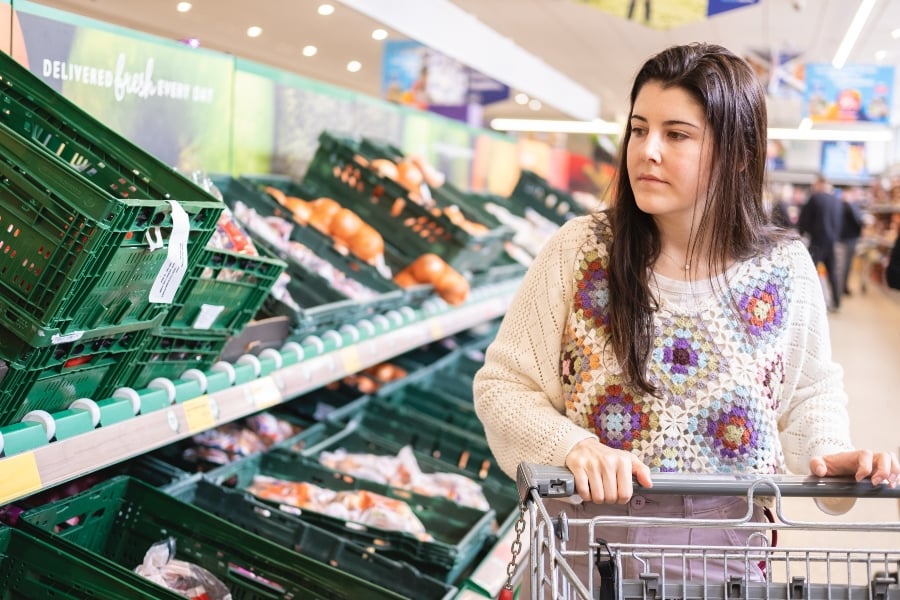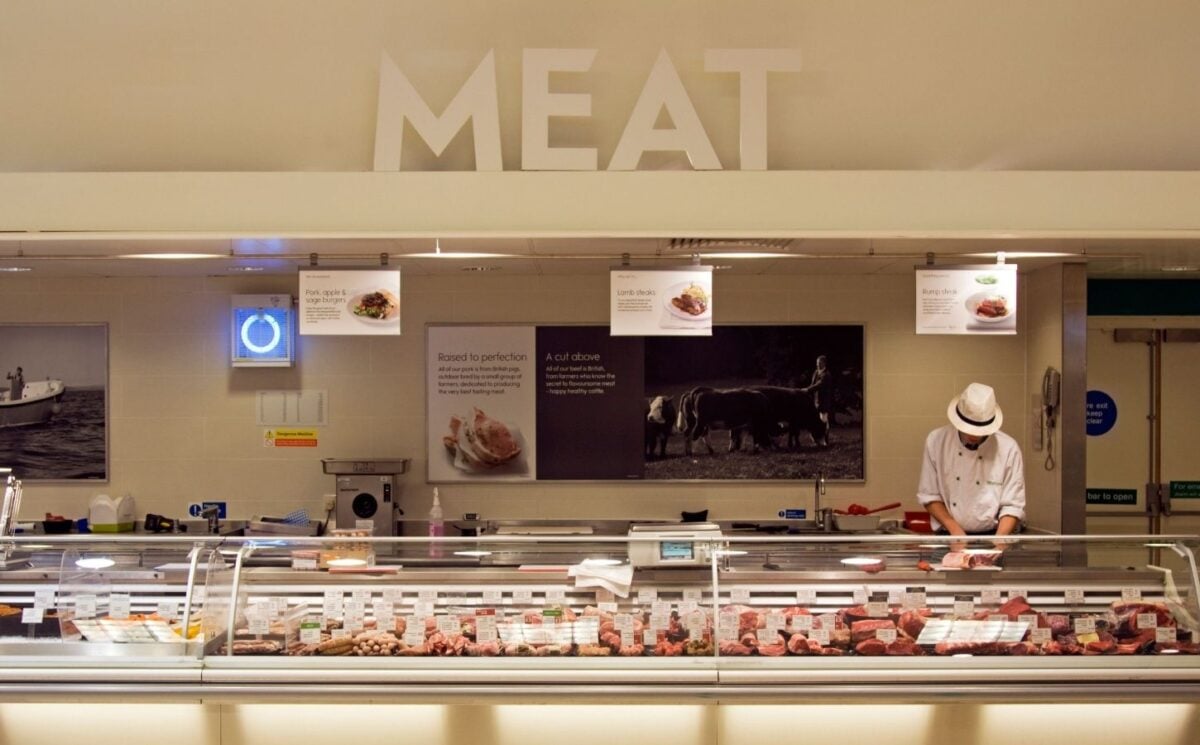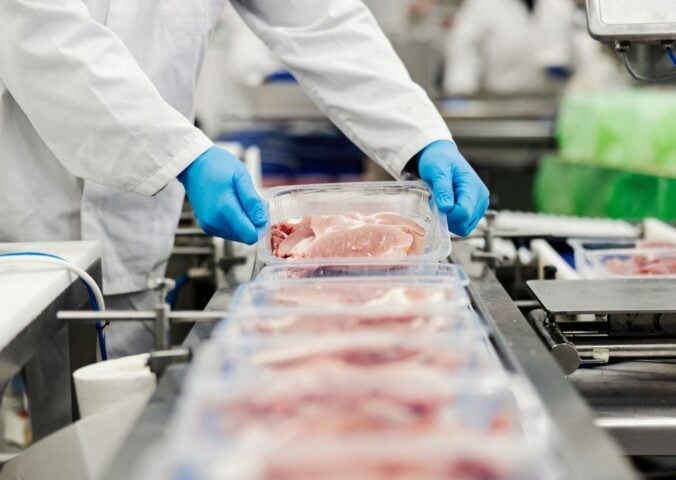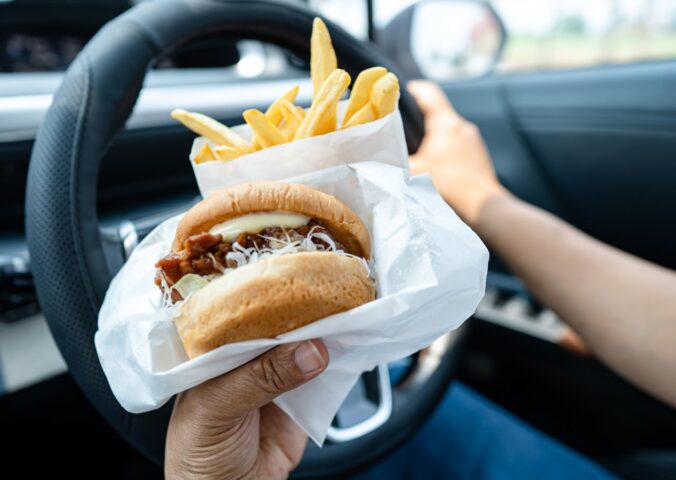Campaign groups have sent complaints to the Advertising Standards Authority (ASA) over new government-backed adverts that promote meat and dairy.
The ads are part of the new “Let’s Eat Balanced” campaign from the Agriculture and Horticulture Development Board (AHDB). It is thought that the AHDB has spent at least £4 million on the campaign to promote beef, lamb, and dairy. The AHDB is part of the governmental Department for Environment, Food & Rural Affairs (Defra).
The ASA regulates advertising in the UK. Last year, it banned an advert by animal advocacy organization Viva! that showed the truth of UK dairy farming.
Animal agriculture is responsible for at least 16.5 percent of global greenhouse gas (GHG) emissions. This figure uses data from the UN Food and Agricultural Organization (FAO), which some think underestimate the true impact. Last year, meat consumption in the UK hit record low levels as more consumers swapped to plant-based alternatives.
Liam Lysaght, a climate campaigner with Feedback Global, one group that has submitted a complaint, told Plant Based News (PBN): “Undermining people’s attempts at ethical eating to profiteer from food that actively harms them is as callous as it is dangerous.”
Ads mislead on climate and health costs of meat
As the effects of meat and dairy on the climate crisis become harder to ignore, the AHDB is spending millions of pounds to persuade young people to consume beef, lamb, and dairy. According to the AHDB, the campaign is expected to reach 92 percent of all UK adults. Its messaging is aimed at younger audiences, with social media ads set to appear more than 48 million times.
One of the adverts states that vitamin B12 can “reduce tiredness and fatigue while supporting the immune system”. This is true – but it is not a reason to eat meat. Those following a plant-based diet can get sufficient B12 by eating fortified foods and taking a supplement. See our vegan B12 guide here.

Moreover, while claiming “balance,” the ads leave out the negative health impacts of meat and dairy. Abundant studies have linked meat and dairy consumption to increased risk of a wide range of conditions from cancer to Covid-19. Recent analysis by the Office of Health Economics found that if everyone in England switched to a plant-based diet, the NHS could save around £6.7 billion a year.
Lysaght thinks the campaign has been “deliberately crafted around the Advertising Standards Authority guidelines.” He says the adverts “prey on health fears in the highly-specific context of B12.”
“As younger people become increasingly conscious of the environmental impact of their food, this is a desperate and self-interested attempt by an the AHDB to exploit young people’s health fears to sell more of its products,” he added.
Veronica Wignall, co-director at Adfree Cities, which also submitted a complaint to ASA about the ads, agrees. She said in a statement: “There is nothing ‘balanced’ about a multi-million advertising campaign pushing pro-meat messaging across cinemas, supermarkets, TV and online. With cows grazing in sunlit green fields, birdsong and health messaging, the AHDB’s ‘Let’s Eat Balanced’ ads don’t tell the whole story.
“We’re calling for the ASA to ban the ads, and for government to introduce restrictions on advertising that is blocking sustainable behaviour change.”
Supermarkets spread mixed messages

All eight major UK supermarkets – Sainsbury’s, Waitrose, Co-op, Tesco, Aldi, Morrisons, and Lidl – are supporting the adverts, according to the AHDB. With adverts on fridges and on products, the retailers are helping the AHDB drive up sales of meat and dairy.
This is despite all eight having policies in place to reach net zero emissions. In its Climate Plan, Co-op pledges to “listen to the science”. It also says it will “prioritise action where we can make the most impact.” Encouraging its customers to go vegan would be the best way to do that, research has shown.
Meanwhile, Lidl promises to be “accountable for our impact and play our role in tackling climate change.” It says that “over 98% of our impact occurs across our value chain.” Despite this, the supermarket is promoting food products that are responsible for climate destruction.
PBN contacted all eight supermarkets for comment. At the time of writing, none had replied.
A report last year revealed “rife” greenwashing among major UK supermarkets. The meat industry embarked on similar “greenwashing” at COP28. Now, supermarkets are teaming up with animal agriculture industries to confuse consumers about the environmental and health impacts of meat and dairy.
Lysaght said: “Retailers representing over 90 percent of the market are exploiting their monopoly on people’s food purchases to push them towards the most harmful products.”






